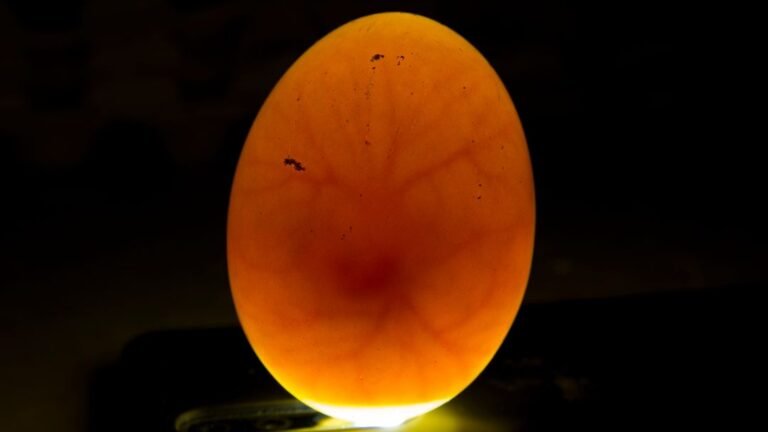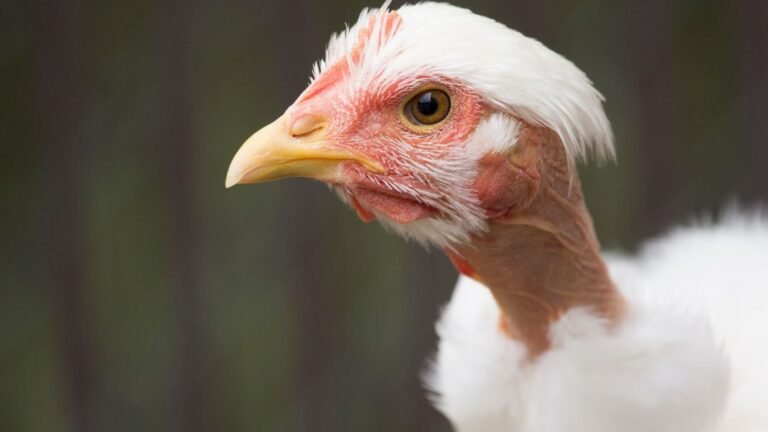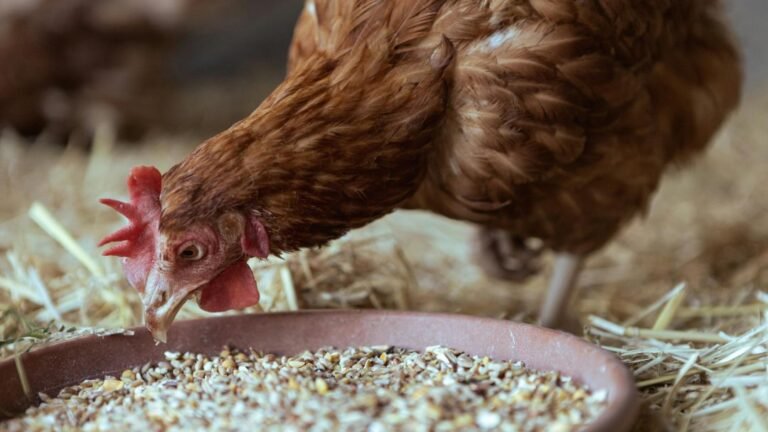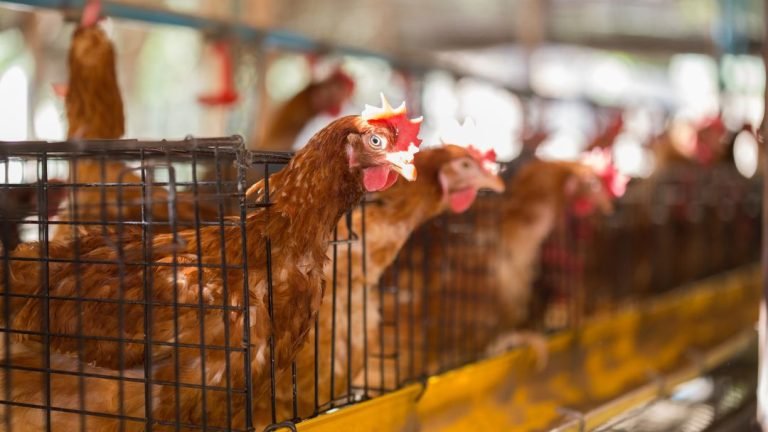Chicken deworming is an essential practice to prevent and treat worm infestations in chickens. Introducing a regular deworming regimen for your chickens is crucial to maintaining their health and preventing potential complications.
Worms can have a detrimental effect on the overall well-being and productivity of chickens, leading to weight loss, decreased egg production, and weakened immune systems. By administering appropriate deworming medication, such as fenbendazole or ivermectin, you can effectively eliminate internal parasites in your flock.
It is important to follow the recommended dosage and administration guidelines provided by poultry experts or veterinarians to ensure proper and safe treatment. Additionally, implementing good management practices, proper hygiene, and regular cleaning of coops and equipment can further reduce the risk of worm infestations. Regularly monitoring your chickens and seeking professional advice when necessary are key components of successful chicken deworming.
Understanding The Importance Of Chicken Deworming
Keeping chickens healthy is crucial for their overall well-being and productivity. One essential aspect of chicken care is deworming. Worm infestations can have a negative impact on chicken health, leading to various health issues and reducing productivity. Understanding why chicken deworming is necessary is key to maintaining a healthy flock.
Why Chicken Deworming Is Crucial For Poultry Health
- Worm infestations can cause significant health problems in chickens, affecting their growth, egg production, and overall vitality.
- Deworming chickens helps to prevent the spread of parasitic worms, which can easily pass from one bird to another, leading to widespread infestations.
- By deworming chickens, you can minimize the risk of mortality caused by severe worm infections.
- Regular deworming improves bird growth, feed conversion, and meat quality, ensuring a healthier and more productive flock.
- Deworming chickens is also essential for biosecurity, as it helps reduce the risk of worm transmission to other animals or even humans.
Common Types Of Worms That Affect Chickens
- Roundworms: These are the most common worms found in chickens and can cause significant damage to the digestive system. Symptoms of roundworm infestation include weight loss, reduced appetite, diarrhea, and poor growth.
- Tapeworms: Tapeworms are flat, segmented parasites that affect the digestive system of chickens. They can lead to malnutrition, weakness, poor feather quality, and decreased egg production.
- Coccidia: Coccidia are protozoan parasites that primarily affect young chickens. They attack the intestinal lining, causing diarrhea, dehydration, and stunted growth.
- Gapeworms: Gapeworms reside in the trachea and can lead to respiratory distress, coughing, and gasping for air. Young birds are particularly vulnerable to these worms.
- Hairworms: Also known as threadworms, hairworms affect chickens’ digestive tracts, leading to weight loss, decreased egg production, and overall weakness.
The Negative Impact Of Worm Infestations On Chicken Health And Productivity
Worm infestations can severely compromise the health and productivity of a chicken flock. The consequences include:
- Reduced weight gain: Worms consume essential nutrients that chickens need for growth, leading to stunted growth and reduced body weight.
- Decreased egg production: Worm-infested chickens may experience a decline in egg production, as their bodies divert resources to combat the parasites instead of producing eggs.
- Malnutrition: Worms can cause malabsorption of nutrients, resulting in nutritional deficiencies that can impair overall health and vitality.
- Weakened immune system: Chronic worm infestations can weaken a chicken’s immune system, making them more susceptible to other diseases and infections.
- Decreased feed efficiency: Worms cause digestive disturbances in chickens, affecting their feed efficiency and resulting in decreased feed conversion rates.
Regular deworming of chickens can prevent these issues and help maintain optimal health and productivity in your flock. By adopting a proactive approach to keeping your chickens free from worms, you are ensuring their well-being and promoting a thriving poultry operation.
Remember, the key to healthy and productive chickens starts with understanding the importance of deworming and implementing a regular deworming schedule to safeguard the overall health of your flock.
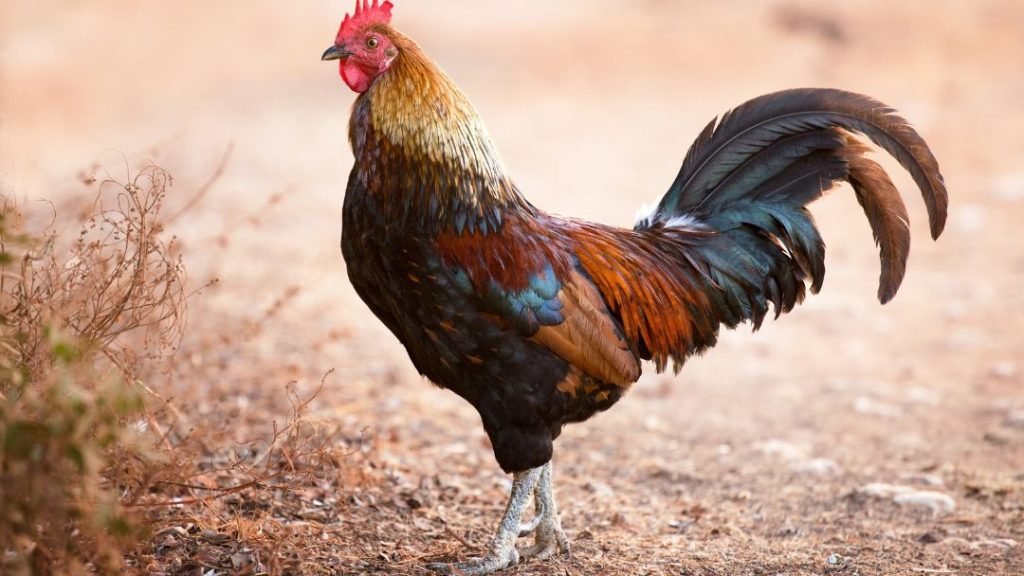
Natural Remedies For Chicken Deworming
Chicken deworming can be done naturally with the help of home remedies that are safe and effective. These natural methods can help eliminate worms from chickens without the use of harmful chemicals or medications.
Herbal Solutions To Combat Worm Infestations In Chickens
If you’re looking for natural remedies for chicken deworming, herbal solutions can be a safe and effective option. Here are some herbal solutions to combat worm infestations in chickens:
- Wormwood: Wormwood is a powerful herb with natural antiparasitic properties. Its active compound, Artemisinin, can help eliminate parasitic worms in chickens. Simply mix dried wormwood leaves into your chicken’s feed to help rid them of worms.
- Neem: Neem, also known as Indian lilac, is a versatile herbal remedy that can help fight worm infestations in chickens. Neem leaves and oil contains natural compounds that have antiparasitic properties. You can sprinkle neem powder in your chicken’s bedding or add neem extract to their drinking water.
- Pumpkin seeds: Pumpkin seeds are not only a healthy snack for humans but can also be beneficial for chickens with worm infestations. These seeds contain an amino acid called cucurbitacin, which acts as a natural deworming agent. Grind the pumpkin seeds and mix them with your chicken’s feed for effective deworming.
- Oregano oil: Oregano oil is well-known for its antimicrobial properties, but it can also help eliminate internal parasites in chickens. Add a few drops of oregano oil to your chicken’s water or mix it with their feed to help control worm infestations.
- Fenugreek: Fenugreek is a herb commonly used in cooking, but it also has deworming properties. Fenugreek seeds can be ground and mixed with your chicken’s feed to eliminate worms naturally.
Using Diatomaceous Earth As A Natural Dewormer
Diatomaceous earth is a natural substance made from fossilized remains of diatoms, a type of algae. It has abrasive properties that can effectively kill and prevent various pests, including internal parasites in chickens. Here’s how you can use diatomaceous earth as a natural dewormer:
- Food-grade diatomaceous earth: Make sure to use food-grade diatomaceous earth, as the industrial-grade alternative can be harmful to chickens. Sprinkle a generous amount of diatomaceous earth in your chicken’s coop, bedding, and dust bathing areas. Chickens will naturally dust themselves with diatomaceous earth, which helps control worm infestations.
- Mixing with feed: You can also mix a small amount of diatomaceous earth into your chicken’s feed to help prevent worm infestations. Remember to use the food-grade variety and gradually introduce it to their diet.
- Regular maintenance: It’s essential to regularly treat the coop and reapply diatomaceous earth as needed. Regular cleaning, along with the use of food-grade diatomaceous earth, supports the prevention and control of worm infestations in chickens.
The Effectiveness Of Garlic As An Alternative Deworming Method
Garlic is a commonly available kitchen ingredient that can be used as an alternative deworming method for chickens. Here’s why garlic can be an effective solution:
- Natural compounds: Garlic contains natural compounds, including allicin, which has both antimicrobial and anthelmintic properties. These properties help combat internal parasites and support overall chicken health.
- Feeding garlic cloves: Crush a few garlic cloves and mix them with your chicken’s feed. This allows them to ingest garlic regularly, which can help prevent and control worm infestations.
- Garlic-infused water: Another way to incorporate garlic into your chicken’s diet is by infusing water with crushed garlic cloves. The garlic-infused water provides additional support in deworming chickens.
- Note of caution: While garlic can be effective in controlling worms, it should be used in moderation. Too much garlic in a chicken’s diet can lead to an unpleasant taste in their eggs. Limit the use of garlic to recommended amounts and consult with a veterinarian if you have any concerns.
Remember, these natural remedies can be used as an alternative deworming method for chickens. However, it’s important to monitor your chickens for signs of infestation and consult with a veterinarian for a comprehensive deworming plan.
Chemical Dewormers For Chickens
Chemical dewormers effectively tackle chicken deworming by eliminating parasites and promoting the overall health of the flock. With their targeted action and ease of administration, these solutions provide essential protection for chickens against harmful worms.
While there are various methods of deworming chickens, chemical dewormers are a popular choice among poultry farmers due to their effectiveness and convenience. In this section, we will provide an overview of commercially available chemical dewormers for chickens, discuss the pros and cons of using these treatments, and provide recommended dosage and administration guidelines.
Overview Of Commercially Available Chemical Dewormers
- Chemical dewormers are pharmaceutical products specifically designed to target and eliminate internal parasites in chickens.
- These dewormers are available in various forms, including powders, pills, and liquids, making them easy to administer to your flock.
- Commercial chemical dewormers typically contain active ingredients such as fenbendazole, ivermectin, or levamisole, which are known to effectively combat worms in chickens.
- Some popular brands of chemical dewormers for chickens include AviRx Plus, WormGuard Plus, and Wazine.
Understanding The Pros And Cons Of Chemical-Based Treatments
Here are some advantages of using chemical dewormers:
- High efficacy: Chemical dewormers are known to have high success rates in eliminating worms and controlling parasite infestations.
- Convenient administration: Chemical dewormers are available in various forms, making it easy to administer the proper dosage to your chickens.
- Wide range of effectiveness: Different chemical dewormers target different types of parasites, providing broad-spectrum coverage.
Despite their benefits, chemical dewormers also have some drawbacks:
- Potential resistance: Over time, parasites can develop resistance to certain chemical dewormers, reducing their effectiveness. It is important to rotate different deworming products to mitigate this risk.
- Withdrawal periods: Some chemical dewormers have withdrawal periods, which means that eggs or meat should not be consumed for a certain period after treatment.
- Environmental impact: Chemical dewormers can have an impact on the environment, especially if not used responsibly. It is crucial to follow dosage guidelines and dispose of leftover dewormers properly.
Recommended Dosage And Administration Guidelines For Chemical Dewormers
- Dosage: Follow the manufacturer’s guidelines for the recommended dosage based on the weight of your chickens.
- Administration: Chemical dewormers can be administered orally or added to the flock’s drinking water. Ensure that each chicken ingests the proper dosage.
- Repeat treatments: Depending on the product and severity of infestation, repeat treatments may be necessary. Follow the recommended schedule provided by the manufacturer.
- Proper hygiene: To prevent reinfestation, maintain clean living conditions for your flock by regularly cleaning the coop and removing feces.
Remember to consult with a veterinarian before using any chemical dewormer, as they can provide specific guidance based on the individual needs of your flock. With the right approach and responsible use, chemical dewormers can be an effective tool in maintaining the health and well-being of your chickens.
Implementing An Effective Deworming Schedule
An effective deworming schedule is vital for maintaining the health of your chickens. Regularly implementing a deworming routine helps control and prevent parasite infections, ensuring the well-being and productivity of your flock.
Designing A Deworming Schedule To Ensure Long-Term Chicken Health
Maintaining a regular deworming schedule is crucial for the overall health and well-being of your chickens. By implementing an effective deworming plan, you can protect your flock from harmful parasites and promote their long-term vitality. To design a deworming schedule that best suits your chickens’ needs, consider the following factors:
Factors To Consider When Determining The Frequency Of Deworming
- Age of your chickens: Younger chickens are more susceptible to worms and may require more frequent deworming compared to adult chickens.
- Environment: Chickens raised in a confined environment or free-range system may have different exposure levels to parasites, thus influencing the frequency of deworming.
- Pasture rotation: If you practice rotational grazing or have multiple chicken coops, it’s important to schedule deworming accordingly to prevent re-infestation across different areas.
- Seasonal changes: Parasite activity can vary with seasons, so adjusting the frequency of deworming based on seasonal patterns can be beneficial.
- Disease outbreaks: In the case of disease outbreaks or suspected infestations, it is crucial to increase the frequency of deworming to prevent further spread.
- Breed susceptibility: Different chicken breeds may have varying susceptibility to certain parasites. Understanding the susceptibility of your specific breed can help determine the frequency of deworming.
By considering these factors, you can design a deworming schedule that fits your chickens’ requirements, ensuring their long-term health and minimizing the risk of parasitic infections.
The Importance Of Rotating Between Different Dewormers
To combat the growing problem of drug resistance in parasites, it is crucial to rotate between different dewormers. Relying on a single deworming medication for an extended period can lead to parasites developing resistance, rendering the treatment ineffective. By periodically switching between different classes of dewormers, you can target a broader range of parasites and reduce the likelihood of resistance.
Rotating between dewormers offers several benefits:
- Enhanced efficacy: Different dewormers target specific parasites, so rotating between them ensures comprehensive treatment and increased effectiveness.
- Preventing resistance: Parasites can develop resistance to specific dewormer classes over time. By rotating between classes, you minimize the risk of resistant strains emerging.
- Broad-spectrum coverage: Utilizing various dewormers expands the range of parasites that can be targeted, allowing for comprehensive parasite control.
Implementing a deworming schedule that incorporates regular rotation between different dewormers will help maintain the effectiveness of treatment and safeguard your flock against parasitic infestations.
Remember, a well-designed deworming schedule is crucial for the health and vitality of your chickens. By considering the factors mentioned above and implementing regular rotation between different dewormers, you can ensure the long-term well-being of your flock.
Prevention And Biosecurity Measures
Maintaining the health of chickens requires effective prevention and biosecurity measures, including regular deworming to control parasites and promote overall well-being.
Implementing Biosecurity Practices To Prevent Worm Infestations
Prevention is key when it comes to keeping your chickens healthy and free from worm infestations. By implementing proper biosecurity measures, you can significantly decrease the risk of worm infestation in your flock. Here are some steps you can take to keep your chickens safe:
- Maintain a strict quarantine protocol for new chickens: Before introducing any new chickens to your existing flock, it is crucial to quarantine them for at least two weeks. This will help you identify and isolate any potential carriers of worms, preventing the spread of infestations.
- Practice rotational grazing: Regularly rotating your chickens to different areas of your land can help decrease the likelihood of worm infestations. This prevents the buildup of parasite eggs in the soil, reducing the risk of your chickens ingesting them.
- Limit access to wild birds and animals: Wild birds and animals can carry parasites and introduce them to your flock. Keep your chickens’ housing and feeding areas secure, preventing any contact with wild animals or their droppings.
- Keep the coop clean and dry: Regularly clean the chicken coop and remove any feces or soiled bedding. This reduces the chances of parasite eggs or larvae surviving in the environment.
- Provide proper nutrition: A well-balanced diet rich in essential nutrients helps keep your chickens’ immune systems strong, making them less susceptible to worm infestations. Ensure your chickens have access to a feed that meets their nutritional requirements.
- Use organic or natural dewormers: There are various organic or natural deworming options available that can help control worms in chickens. These products are less harmful to the environment and pose no risk to your chickens’ health when used as directed.
Maintaining Proper Hygiene And Cleanliness In The Chicken Coop
A clean and hygienic chicken coop is essential to prevent worm infestations. By following these hygiene tips, you can create a healthier environment for your chickens:
- Regularly muck out the coop: Remove soiled bedding and replace it with fresh, clean material. This helps remove any potential worm eggs or larvae that may be present.
- Provide adequate ventilation: Proper airflow in the coop reduces moisture levels and prevents the buildup of ammonia, which can weaken your chickens’ immune system and make them more susceptible to worms.
- Use suitable flooring materials: Opt for materials that are easy to clean and don’t retain moisture. This discourages the growth of bacteria and parasites.
- Keep feeders and waterers clean: Regularly clean and sanitize feeders and waterers to prevent the spread of diseases and parasites.
- Avoid overcrowding: Crowded living conditions can increase stress levels in chickens, making them more susceptible to infections and worms. Provide enough space for each bird to avoid overcrowding.
Tips For Identifying And Quarantining Infected Chickens
Despite your best efforts, there may be times when you encounter worm infestations in your flock. Here are some tips to identify and quarantine infected chickens:
- Conduct regular flock health checks: Regularly observe your chickens for any signs of poor health or abnormal behavior. Symptoms such as weight loss, reduced egg production, diarrhea, or pale combs may indicate a worm infestation.
- Perform fecal exams: Collect fecal samples from your chickens and have them examined by a veterinarian. This will help determine the type of worms present and guide the appropriate treatment plan.
- Isolate infected chickens: If you identify an infected chicken, isolate it from the rest of the flock immediately to prevent the spread of worms. Provide separate housing, food, and water until the chicken is dewormed and cleared by a veterinarian.
By implementing these preventive measures and maintaining good hygiene practices, you can effectively reduce the risk of worm infestations in your chicken flock. These steps will help keep your chickens healthy, thriving, and free from the harmful effects of parasites.
Monitoring And Assessing Chicken Health
Chicken deworming is an essential part of monitoring and assessing chicken health. By regularly deworming your chickens, you can prevent infestations and ensure their overall well-being. Keep your chickens healthy and thriving with proper deworming practices.
Recognizing The Signs Of Worm Infestations In Chickens
- Loss of appetite and decreased egg production: Chickens infected with worms may show a reduced interest in food and may produce fewer eggs than usual.
- Weight loss and poor growth: Worm infestations can hinder a chicken’s growth and cause them to appear emaciated and underdeveloped.
- Lethargy and weakness: Infected chickens may become lethargic and exhibit signs of weakness or fatigue.
- Pale comb and wattles: Worms in chickens can lead to anemia, resulting in pale or discolored comb and wattles.
- Presence of worms in feces or vomit: Worms can sometimes be visible in a chicken’s droppings or vomit, indicating an infestation.
Conducting Regular Fecal Egg Counts To Monitor Worm Burden
- Fecal egg counts involve examining the feces of chickens to determine the number of worm eggs present. This provides an estimate of the worm burden within the flock.
- Regular monitoring through fecal egg counts helps assess the effectiveness of deworming treatments and identify any potential outbreaks.
- Samples should be collected from multiple chickens in the flock for accurate results.
- A veterinarian can provide guidance on proper sampling techniques and assist in the interpretation of the results.
Understanding The Role Of Veterinarians In Diagnosing And Treating Worm Infestations
- Veterinarians play a crucial role in diagnosing and treating worm infestations in chickens.
- They have the expertise to accurately identify the types of worms affecting the flock.
- Veterinarians can recommend appropriate deworming medications and treatment protocols based on the specific worm species and the age and health of the chickens.
- Regular consultations with a veterinarian help ensure the well-being of the flock and reduce the risk of complications from worm infestations.
- When treating worm infestations, veterinarians will also advise on preventive measures to minimize the risk of reinfestation and promote overall flock health.
Alternative Approaches To Chicken Deworming
Chicken deworming can be approached using alternative methods that are effective and safe. These methods provide natural solutions to combat worms in chickens, promoting their health and well-being.
Exploring Alternative Methods Of Preventing And Controlling Worm Infestations
- Rotational Grazing: One approach gaining popularity among chicken owners is rotational grazing. This practice involves moving chickens between different grazing areas, allowing the land to recover before the flock returns. Here’s why rotational grazing can be beneficial for deworming:
- Reduced parasite load: By rotating grazing areas, you limit the exposure of chickens to the same parasite-infested soil, minimizing the risk of worm infestations.
- Natural control: By giving the land time to rest and rejuvenate, rotational grazing helps break the lifecycle of worms. The absence of chickens allows parasites to die off in the environment.
- Improved foraging: As chickens move to fresh pasture, they encounter diverse vegetation and insects. This variety in diet helps boost their immunity, making them less susceptible to parasites.
The Potential Benefits Of Rotational Grazing For Deworming
- Integrating natural deworming practices: In addition to rotational grazing, there are other natural approaches you can incorporate into your chicken-rearing system to promote deworming. Here are a few methods to consider:
- Herbal remedies: Certain herbs, such as garlic, mint, or wormwood, have natural deworming properties. Adding these herbs to your chickens’ diet or providing them as fresh forage can assist in controlling worm infestations.
- Probiotics supplementation: Probiotics help maintain a healthy gut microbiome in chickens, making it more difficult for parasites to establish themselves. Incorporating probiotic supplements or fermented foods can support deworming efforts.
- Diatomaceous earth: This natural powder, composed of fossilized algae, acts as a physical deterrent for worms. Sprinkling a small amount of food-grade diatomaceous earth in your chickens’ living and grazing areas can help control worm populations.
Remember, prevention and management of worm infestations not only contribute to the overall health of your chickens but also minimize the need for chemical treatments. By exploring alternative approaches like rotational grazing and integrating natural deworming practices, you can create a healthier environment for your flock while reducing the risk of worm-related issues.
Conclusion
Ensuring proper deworming for your chickens is a vital step in maintaining their health and productivity. By regularly deworming your flock, you can prevent infestations and the associated negative effects on their overall well-being. Remember to consult with a veterinarian to determine the most appropriate deworming protocol for your specific situation.
Additionally, implementing good biosecurity practices, such as maintaining a clean and hygienic environment, can further reduce the risk of worm infestations. Stay vigilant and watch for any signs of poor growth, weight loss, diarrhea, or reduced egg production, as these may indicate a worm problem.
By prioritizing chicken deworming, you can ensure that your feathered friends stay happy, healthy, and free from the detrimental effects of parasites.

